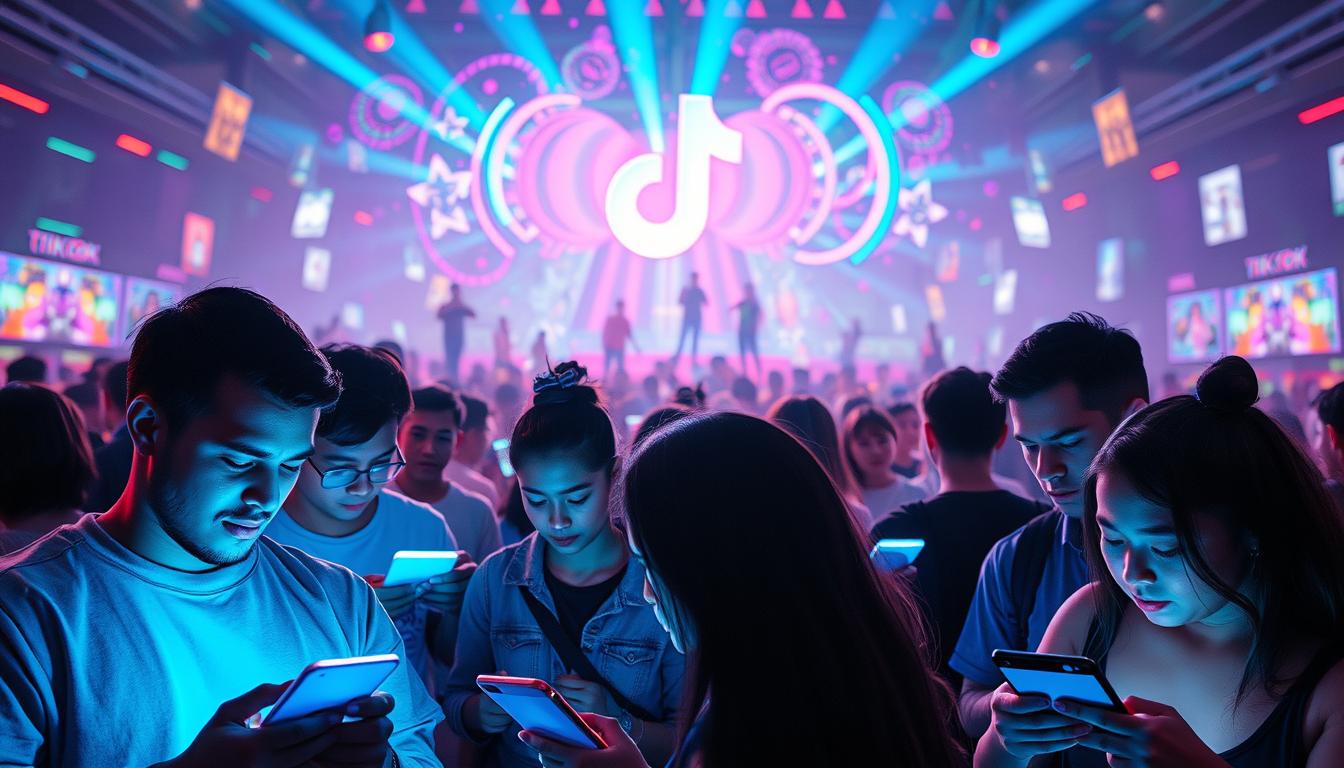TikTok has taken the social media world by storm, with over 170 million active users in the U.S. alone. Its short-form videos shape trends, influence culture, and even impact politics. But behind its popularity lies a complex debate about ownership and security.
The app is owned by ByteDance, a company based in China. This has raised concerns about data privacy and national security. U.S. officials worry that the Chinese government could access user information. Recent talks involve potential sales or bans, adding to the uncertainty.
Former President Trump once pushed for a ban but later suggested a deal. Meanwhile, TikTok continues to dominate digital spaces. Understanding its ownership helps explain why it’s at the center of global discussions.
Key Takeaways
- TikTok has 170 million users in the U.S., making it a major player in social media.
- ByteDance, its parent company, faces scrutiny due to ties with China.
- National security concerns drive debates over TikTok’s future in America.
- Political leaders have shifted from bans to potential sales.
- The platform influences digital trends and global politics.
Who Owns TikTok? Breaking Down the Ownership
Behind TikTok’s global success lies ByteDance, a tech powerhouse with deep roots in China. Founded in 2012 by Zhang Yiming and Liang Rubo, the company operates from dual headquarters in Beijing and the Cayman Islands. This structure reflects its blend of local influence and global reach.
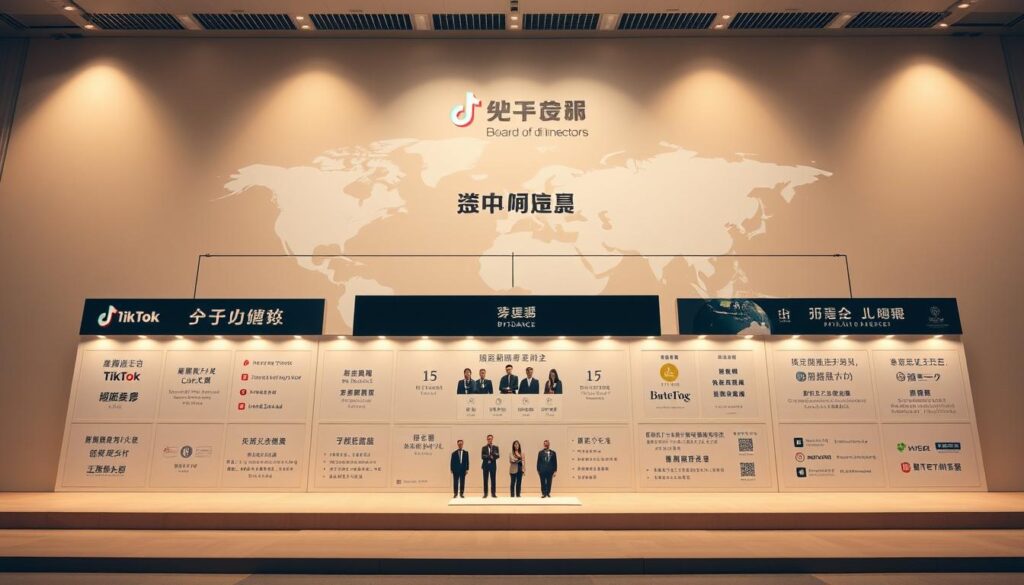
ByteDance: The Chinese Tech Giant Behind TikTok
ByteDance isn’t just TikTok’s parent company—it’s a sprawling empire. While Beijing serves as its operational hub, the Cayman Islands base helps navigate international laws. Notably, the Chinese Communist Party holds a 1% golden share in ByteDance’s Beijing subsidiary, granting oversight over content and data.
Key Figures: From Zhang Yiming to Shou Zi Chew
Zhang Yiming, though no longer CEO, remains a board member and visionary. In 2021, Shou Chew took the helm as TikTok’s CEO. His background at Xiaomi and Goldman Sachs brought financial savvy to the platform’s explosive growth.
Global Shareholders and Corporate Structure
ByteDance’s ownership is surprisingly global:
- 60% of shares belong to non-Chinese investors, including Susquehanna International (30%) and General Atlantic.
- SEC filings reveal Susquehanna’s stake is worth $21 billion.
- Sequoia Capital and other firms hold minority shares.
This mix fuels both innovation and geopolitical debates.
ByteDance: TikTok’s Parent Company and Its Empire
ByteDance isn’t just another tech company—it’s a digital empire with global influence. While best known for TikTok, this Cayman Islands-based firm operates dozens of popular apps. Its $300 billion valuation rivals some of Silicon Valley’s biggest players.
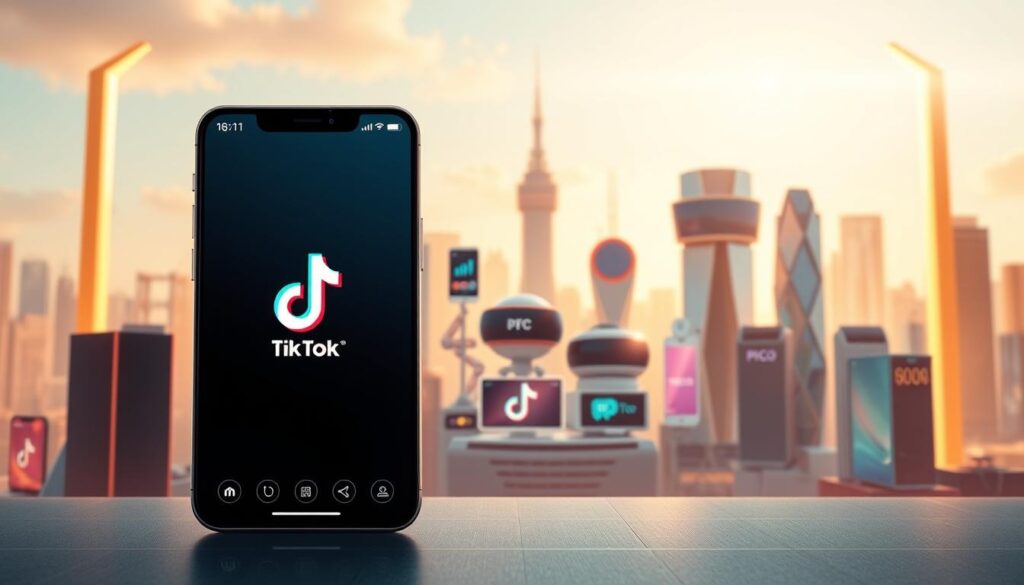
From Douyin to CapCut: ByteDance’s Product Portfolio
ByteDance’s success comes from its diverse product portfolio. Douyin, China’s version of TikTok, has unique features like live shopping integrations. CapCut, their video editor, boasts 200 million monthly active users worldwide.
The company also develops:
- Lark, a workplace collaboration tool
- Xigua Video, China’s answer to YouTube
- Resso, a music streaming service
Revenue and Growth: A $300 Billion Valuation
ByteDance reported $110 billion in revenue for 2023, marking 30% year-over-year growth. This puts its valuation at roughly one-fourth of Meta’s $1.2 trillion worth. The table below shows how ByteDance compares to other tech giants.
| Company | Valuation | Key Product |
|---|---|---|
| ByteDance | $300B | TikTok |
| Meta | $1.2T | |
| Alphabet | $1.7T |
Government Ties: The CCP’s Role in ByteDance
The Chinese government maintains close ties with ByteDance. Since 2014, a Chinese Communist Party committee has overseen content operations. The company also partners with China’s Ministry of Public Security on data projects.
Recent developments include:
- 1,000+ job cuts in 2024 restructuring
- Increased content moderation for political topics
- Expanded PR collaboration with Chinese authorities
These government connections fuel ongoing debates about the company’s global operations and data practices.
TikTok’s US Ban Debate & National Security Concerns
The battle over TikTok’s future in the U.S. has become a flashpoint in global tech policy. With 170 million American users, the app’s ties to China through ByteDance have triggered intense scrutiny. The trump administration set the stage for today’s debates, but recent laws and lobbying efforts reveal a complex fight.
Trump’s Ultimatum: Sell or Face a Ban
In 2020, former President Trump demanded ByteDance sell tiktok to a U.S. company or face ban. His proposal included a 50% stake for American investors, like Oracle or Walmart. Though the deal stalled, it highlighted bipartisan concerns about data flows to China.
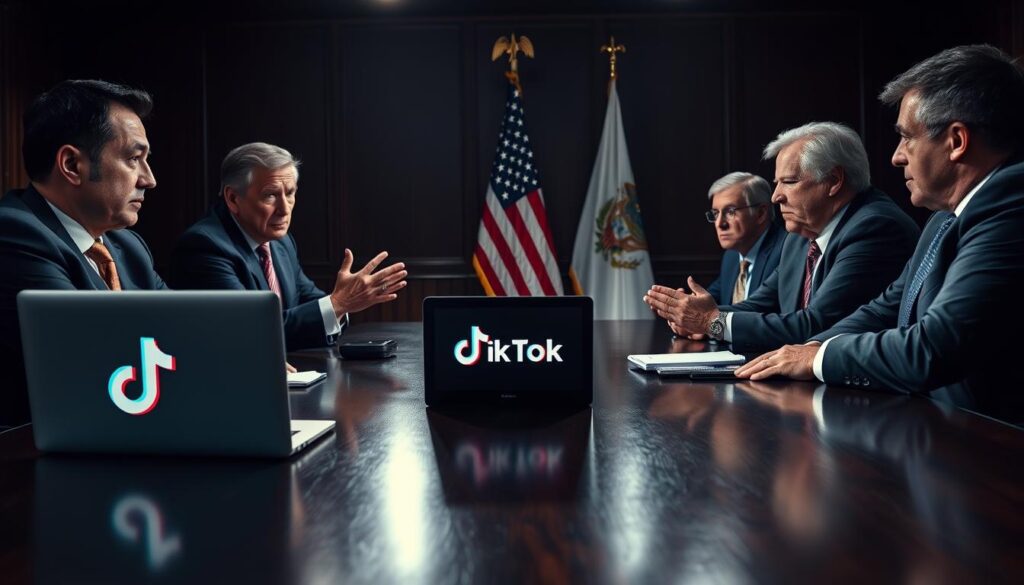
By 2023, TikTok spent $8.7 million on U.S. lobbying to counter restrictions. Potential buyers like Elon Musk and Blackstone explored minority investments, but no agreement emerged. The app’s algorithmic control remains a sticking point.
US Fears: Data Privacy and Chinese Surveillance
The FBI and Department of Justice warn that TikTok’s data could aid Chinese surveillance. A 2022 audit found failures in U.S. data localization, meaning American user info might still reach Beijing. ByteDance’s $2.1 million ad campaign in swing states further fueled distrust.
“The risk isn’t just data—it’s influence,” said a national intelligence official. The app’s trend-shaping power could, in theory, sway elections or suppress dissent.
Legislative Actions: The Protecting Americans Act
In April 2024, Congress passed a law requiring ByteDance to divest TikTok within nine months or lose U.S. access. Key provisions include:
- Banning app stores from hosting TikTok unless sold
- Granting the president authority to block similar foreign apps
- Mandating transparency on algorithmic changes
Critics argue the law could face First Amendment challenges. Meanwhile, TikTok vows to fight back in court, calling the measure “unconstitutional overreach.”
TikTok’s Influence on Social Media and Users
With 170 million active users in the U.S., TikTok has rewritten the rules of digital engagement. The platform blends entertainment, commerce, and activism, creating a cultural force unlike any other. Its ripple effects touch everything from teen slang to presidential campaigns.
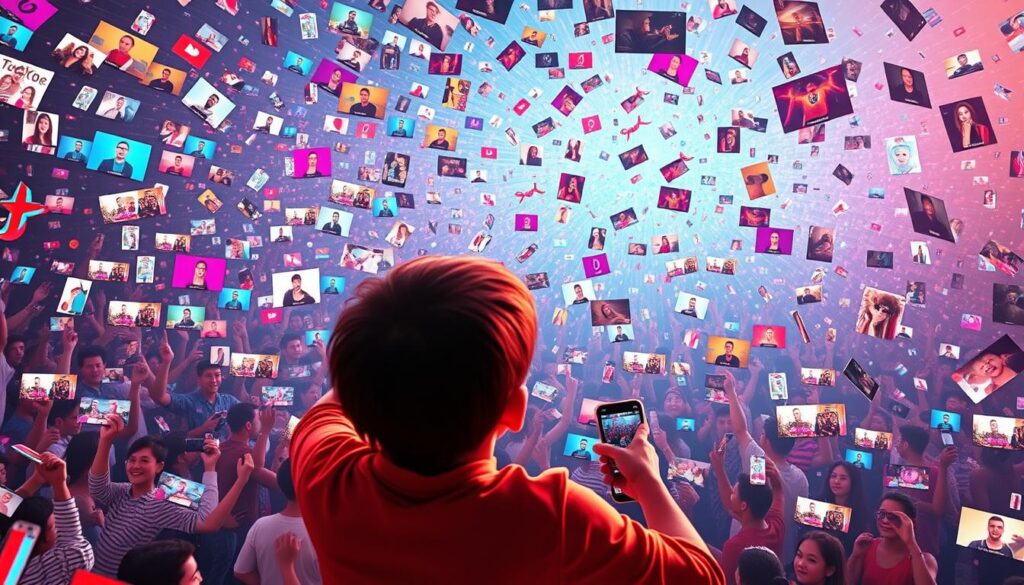
170 Million US Users: Cultural and Economic Impact
60% of TikTok’s users are aged 16–24, making it Gen Z’s favorite playground. This demographic drives trends like the “TikTok made me buy it” phenomenon, where viral videos boost sales for products like digital marketing trends.
Small businesses thrive here too. #BookTok turned obscure novels into bestsellers, while DIY creators earn via TikTok Shop. The U.S. creator economy fueled by the platform now tops $16 billion annually.
Competition with Meta and YouTube
TikTok’s engagement rates dwarf rivals. Users spend 95 minutes daily on the app—30% longer than Instagram Reels. YouTube Shorts struggles to match its algorithm’s precision in serving addictive content.
“Meta’s copying our homework,” jokes a viral creator. Features like duets and stitches remain uniquely TikTok, keeping competitors playing catch-up.
How TikTok Shapes Trends and Politics
1 in 3 Gen Zers gets news from TikTok, per Pew Research. During elections, hashtags like #TikToktheVote mobilize young voters. But moderation policies face scrutiny—critics claim the platform suppresses contentious topics.
The algorithm’s power is undeniable. A single soundbite can go global overnight, as seen with political speeches repurposed as memes. This influence ensures TikTok remains at the center of social media’s evolving world.
Conclusion: TikTok’s Future in a Divided World
The future of this viral app hangs in the balance as political and tech forces collide. Three paths emerge: a forced sale, a complete ban, or prolonged legal battles keeping the status quo. Each outcome reshapes the digital landscape.
A ban could accelerate US-China tech decoupling, pushing creators to platforms like Reels or YouTube Shorts. ByteDance might spin off assets or pursue an IPO to appease regulators. Meanwhile, the Chinese government tightens data laws, challenging global tech norms.
76% of Americans support removing the app without a sale, reflecting growing distrust. Yet its cultural impact lingers—trends born here dominate every corner of social media. The final act in this drama will test how democracies balance security, innovation, and free expression.

